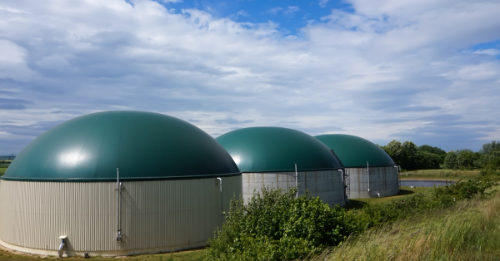Ivory Coast Gets $3M for Cocoa Waste-to-Energy Plant in Divo

TLDR
- Ivory Coast has reached a major milestone in its energy transition with the development of the world’s first biomass plant, which converts cocoa waste into electricity
- The project has secured $3 million in financing from Climate Fund Managers (CFM) and is led by SODEN
- The project is structured as a public-private partnership, with SODEN already investing over €2 million
Ivory Coast has reached a major milestone in its energy transition with the development of what's said to be the world’s first biomass plant, which converts cocoa waste into electricity for the national grid. Located in Divo, the project has secured $3 million in financing from Climate Fund Managers (CFM) and is led by SODEN, an Ivorian renewable energy firm.
The 76 MW plant is expected to generate 550 GWh annually from cocoa pods, shells, and old rubber trees, supplying clean power to over 1.4 million people and avoiding 300,000 tons of CO₂ emissions per year starting in 2029. This marks CFM’s first-ever investment in Côte d’Ivoire.
The project is structured as a public-private partnership, with SODEN already investing over €2 million. Once operational by 2026, the plant will provide local access to electricity while utilizing agricultural waste that would otherwise contribute to pollution and disease.
Daba is Africa's leading investment platform for private and public markets. Download here
Key Takeaways
The Divo biomass plant stands at the intersection of climate innovation and rural development. With Ivory Coast producing over 40% of global cocoa, the project addresses the challenge of more than 13 tons of organic waste per ton of cocoa harvested—waste that typically generates methane and degrades soil health. By converting this biomass into electricity, the project helps prevent deforestation, boost soil recovery, and eliminate harmful emissions from decomposing cocoa waste. Beyond the environmental impact, the initiative is projected to generate 3,900 jobs, including 440 permanent roles, and create new income streams for 36,000 smallholder farmers. The local economic impact is estimated at €6.8 million per year for 30 years, making the plant a cornerstone for long-term rural resilience. Seed funding came from USTDA in 2018, and a further $35 million in capital is expected at final close. CFM, which manages over $2 billion globally, sees the project as a scalable model for climate-resilient infrastructure across emerging markets in Africa, Asia, and Latin America.

Next Frontier
Stay up to date on major news and events in African markets. Delivered weekly.
Pulse54
UDeep-dives into what’s old and new in Africa’s investment landscape. Delivered twice monthly.
Events
Sign up to stay informed about our regular webinars, product launches, and exhibitions.




